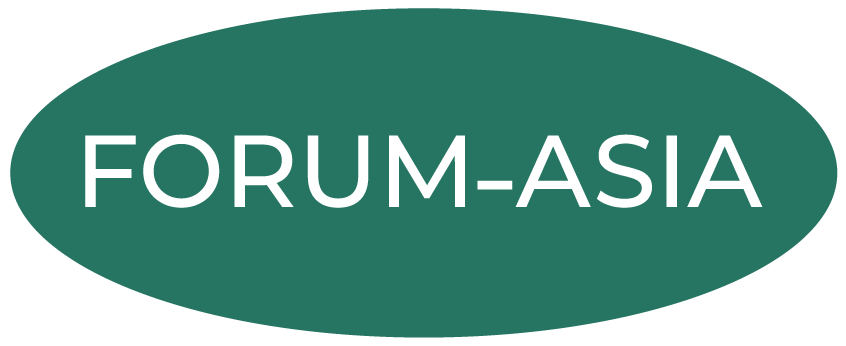Singapore’s wide-ranging use of criminal laws has allowed it to stifle freedoms of expression, peaceful assembly and association. Despite presenting itself as an economically progressive nation, these laws allow the Government to impose a stronghold on its people and thus, to skirt calls for greater democratic space. These include the Public Order Act, the Sedition Act, and the POFMA, or the ‘Fake News’ Act passed in 2019. Civil society has criticised these laws for the ways they have been interpreted to specifically target activists.
Singapore
- Brief Overview
- Protection from Online Falsehoods and Manipulation Act (POFMA)
- Updates
- Public Order Act 2009
- Updates
- Cases - COVID-19 policies
- Updates
Brief Overview
Protection from Online Falsehoods and Manipulation Act, 2019
The Protection from Online Falsehoods and Manipulation Act, more commonly known as the ‘Anti-Fake News’ Law took effect in October 2019.
The Act has several objectives: to prevent the communication of false statements of fact in Singapore and to enable measures to be taken to counteract the effects of such communication; to suppress the financing, promotion and other support of online locations that repeatedly communicate false statements of fact in Singapore; to enable measures to be taken to detect, control and safeguard against coordinated inauthentic behaviour and other misuses of online accounts and bots; and to enable measures to be taken to enhance disclosure of information concerning paid content directed towards a political end.
The full act can be found in the link below
Updates
2021
Home Affairs Minister K Shanmugam has rejected an application by socio-political website The Online Citizen (TOC) to cancel a Protection from Online Falsehoods and Manipulation Act (POFMA) order issued against it.
21 May: Pofma directives issued over allegations of police bullying elderly woman for not wearing mask
Singapore’s fake news law has been invoked in response to claims circulating online that police officers had bullied and reprimanded an elderly woman for not wearing her mask
A directive under the POFMA (Protection from Online Falsehoods and Manipulation Act) has been issued to Facebook, Twitter and SPH Magazines over falsehoods about a “Singapore variant” of COVID-19
12 May: Singapore clarifies on Pofma, death penalty at UN review of its human rights record
At the 38th session of the Universal Periodic Review Working Group Meeting in Geneva, the Protection from Online Falsehoods and Manipulation Act (Pofma) and death penalty were among the key issues raised during the review of Singapore’s human rights record
8 May: MOT issues Pofma correction direction over video of South Asians at Changi Airport
The Ministry of Transport (MOT) on Friday (May 7) invoked Singapore’s fake news law in response to a video circulating on social media showing a large group of South Asian travellers purportedly arriving at Changi Airport despite travel restrictions. A correction direction has been issued to the “Singapore Incidents” pages on Facebook and Instagram, which had both posted the false video, said MOT in a statement
Transport Minister Ong Ye Kung has instructed the Protection from Online Falsehoods and Manipulation Act (POFMA) Office to issue the correction direction to Singapore Incidents. A video that purportedly shows South Asian travellers at Changi Airport on May 5, despite current travel restrictions. The information in the video is false, said the Ministry of Transport on Friday (May 7).
The Health Minister had instructed the Protection from Online Falsehoods and Manipulation Act (Pofma) Office to issue correction directions on the Goh Meng Seng People’s Power Party and Goh Meng Seng (Satu Singapura) Facebook accounts, as well as the Singapore Uncensored website, after unsubstantiated claims about adverse reactions to Covid-19 vaccines were posted on Facebook and published online by a website. These are the first Pofma correction directions issued since July last year.
4 February: Has POFMA been effective? A look at the fake news law, 1 year since it kicked in
Since the law kicked in, the POFMA Office has issued 51 correction directions, 11 targeted correction directions, four declared online locations, three disabling orders, one general correction direction and one access blocking order
2020
19 October: 11 groups raise concerns about Pofma, S377A and the death penalty in report to UN
Eleven civil society organisations raised concerns on POFMA, as well as the mandatory death penalty in their joint Universal Periodic Review (UPR) submission. Among its recommendations are the repeal of POFMA, and the passage of a Freedom of Information law. Singapore is scheduled to have its third UPR session in 2021.
2 October: Malaysian court strikes out Lawyers for Liberty lawsuit against Shanmugam
The High Court of Malaysia struck out the lawsuit filed by human rights group Lawyers for Liberty against Singaporean Minister K. Shanmugan. The High Court noted that LFL had not served court papers on Mr Shanmugan and ‘discontinued applications to renew the papers’. The Ministry of Home Affairs called LFL’s lawsuit ‘baseless’.
17 September: Judgment reserved in The Online Citizen, SDP’s POFMA appeals, as court grapples with legal issues including burden of proof
Singapore’s Court of Appeal reserved judgment on appeals filed by the Singapore Democratic Party and The Online Citizen (TOC) concerning POFMA correction orders issued against them. The SDP was given a correction order for allegedly making false on unemployment; while TOC was alleged to have made a false statement concerning hanging methods in Changi prison.
5 July: Pofma correction directions issued to 4 Facebook pages, 1 website
The Pofma office issued correction orders to the Facebook pages of Peoples Voice, the Singapore Democratic Party, and ‘Sin Rak Sin Party’, and the website and Facebook page of The Online Citizen Asia. The notice reportedly concerned claims by the pages that Dr Cheong Koon Hean, chief executive of the Housing Development Board, had suggested that the country’s population would increase to 10 million by year 2030.
13 May: Govt issues first Pofma correction directions over alleged falsehoods about the fake-news law itself
The Ministry of Law filed a POFMA correction order to Thum Ping Tjin and New Naratif for a video on New Naratif’s Youtube channel where Thum was alleged to have made “several false and misleading statements” about the law.
24 January: Malaysian watchdog sues Singapore home minister K. Shanmugam, challenges fake news law
Human rights group, Lawyers for Liberty filed a lawsuit in the Malaysian High Court against Singaporean Home Minister K. Shanmugam, days after the POFMA officed filed a correction order against the group. The group is stating that POFMA cannot be enforced in Malaysia as it violates domestic policy. The correction order concerned allegations by Lawyers for Liberty of brutal executions in the Changi prison.
Home Affairs Minister K Shanmugam has ordered the the POFMA (Protection From Online Falsehoods And Manipulation Act) Office to issue a correction direction against human rights group Lawyers for Liberty for a statement on its website alleging that Singapore conducts brutal executions. The POFMA Office were also instructed to issue correction directions to Kirsten Han’s Facebook post, an online article by The Online Citizen and a Facebook post by Yahoo Singapore, which shared LFL’s allegations.
2019
25 November: Government invokes POFMA for the first time.
The Government has invoked POFMA for the first time, months after it was passed. Progress Singapore Party (PSP) member Brad Boyer was issued a correction direction under POFMA, and was asked to correct a ‘false’ post and provide a link to an article providing correct facts.
2 October: POFMA takes effect
POFMA officially takes effect five months after it was passed by the Parliament.
8 May: Parliament passes POFMA Bill.
After two days of deliberation. the Parliament passes into law the POFMA Bill. The Law Minister dismisses criticism raised on its ‘chilling effect’ and possible misuse of the government
The Public Order Act, 2009
Passed in 2009, the Public Order Act prohibits individuals from organising or participating in public assemblies without a police permit. Permits can be refused if the assemblies are seen to cause public nuisance or disorder, or perceived as the glorification of terrorism, The law has been criticised for its broad definition of terms such as assembly, and public disorder.
The full act can be accessed in the link below:
Updates
2021
3 May: Activist Gilbert Goh investigated for holding up placard outside ICA building
Activist Gilbert Goh is being under investigation under the Public Order Act for holding a placard outside the ICA building, calling on the government to ban flights from India. Under the Public Order Act, holding an assembly without a permit is prohibited.
3 March: MP Louis Ng Under Investigation For Meeting Yishun Hawkers & Showing Support With A Placard
On 20 Jun 2020, Nee Soon GRC MP Louis Ng held a sign to support hawkers in Yishun. He is now under police investigation for a possible offence under the Public Order Act. Under Singapore’s Public Order Act, having a public assembly without a police permit, even if it’s only by 1 person, is punishable by law.
2020
23 November: Jolovan Wham charged with illegal protests outside old State Courts, in Toa Payoh
Jolovan Wham is charged with two offences under the Public Assembly Act.
The Court of Appeal dismissed a challenge to the Public Order Act, which argued that the requirement to obtain a permit prior to a public assembly is unconstitutional. The Court argued that the constitutional right to freedom of assembly has limits.
2019
17 September: Singaporean pair investigated under Public Order Act for advocating against the death penalty
Nafiz Kamarudin, and his wife were investigated under the Public Order Act for wearing t-shirts with the message ‘2nd chances means not killing them’, to protest against the death penalty in a running event. Police argued that the event was not a proper venue to express such views.
Cases - COVID-19 policies
The COVID (Temporary Measures) Act was passed by Parliament on 7 April 2020. Under Sections 34(1) of the Act, the Minister may make regulations (called “control orders”) for the purpose of preventing, protecting against, delaying or otherwise controlling the incidence or transmission of COVID-19 in Singapore.
Updates
2021:
4 May: The government has debunked 40 instances of fake news on COVID-19
Government agencies have clarified and debunked about 40 instances of fake news on COVID-19 since late January, Communications and Information Minister Iswaran told Parliament on Monday (May 4)
26 February: Briton jailed for breaking strict quarantine
A British man was jailed for two weeks Friday for violating Singapore’s strict coronavirus rules by leaving his room at a luxury hotel while under quarantine to meet his fiancee. Nigel Skea was also fined Sg$1,000 (US$750) for the breach, while Singaporean Agatha Maghesh Eyamalai — now his wife — was jailed for a week for helping him.
2020
17 December: As Singapore Ventures Back Out, Migrant Workers Are Kept In
The low-wage workers, almost half of whom have contracted the coronavirus, continue to be mostly confined to dormitories even as the city-state eases restrictions. Migrant workers in Singapore will face greater restrictions compared to the rest of the population as the country moves into a reopening stage

 To learn more about our ASEAN advocacies and campaigns, click here.
To learn more about our ASEAN advocacies and campaigns, click here.